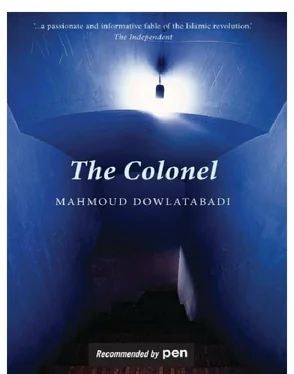The Second World War brought a change. Allied forces from Great Britain and the Soviet Union occupied Iran, forced Reza Shah to abdicate and banished him to Mauritius. There were two reasons for this: the Allies felt that, although Iran was officially neutral, Reza Shah was too close to the Axis and secondly, Iran was needed as a transit route to send war material to Russia, to prevent the Nazi occupation of the oilfields in the Caucasus, and their possible advance into Iran and her oilfields. The old dictator, who had made great play of national independence, was succeeded by his young, inexperienced, largely apolitical and malleable son. For a short spell, there ensued a power vacuum, which gave various nationalist and leftist movements the chance to make their reappearance on the political stage.
During this brief phase of Iranian history at the height of the cold war, liberals and democrats were able to operate freely. Under the prime ministership of Mohammad Mossadeq, the British-owned oilfields were nationalised, the British were forced to leave the country and the British dominance over Iran came to an end. The new Shah also decided to leave. Believing that Mossadeq was now under communist influence, in 1953 the CIA orchestrated a coup, which toppled his government and brought back the young Shah. This gave the United States the opportunity to fill the vacuum left by the British departure. The Americans, with the help of the Israelis, built up SAVAK, the highly efficient secret service, which devoted itself to the suppression of all opposition, particularly of the communist Tudeh party, which was supported by Moscow.
The popular uprising that broke out in 1978 was initially inspired by the various leftist movements, but it was not long before the Islamic clergy under the leadership of Ayatollah Khomeini managed to position themselves at the forefront of the opposition movement and seize power after the overthrow of the Shah. Having been in the game much longer, and being far closer to the people than the European-educated student leftists, they were far more experienced in the art of crowd manipulation. Bridging the divide between Islam and secular socialism had been the preaching of Ali Shariati, who concocted a synthesis of the two in order to make socialism palatable to the traditionally-minded masses. He was killed in England in 1975. Some say that SAVAK killed him, while others say that it was the work of the Islamic hard-liners.
Their aim was the complete Islamization of Iranian society and the dismantling of all the democratic-liberal reforms that had been enacted in the country in the last few months of the Shah’s reign. For the Islamists, this was the time to settle old scores: not only did they ruthlessly stamp out all other political movements and liquidate their representatives, they also instigated a thorough-going ‘cultural genocide,’ designed to expunge from Iran every last trace of the modern world and its institutions. The revolution was to be Islamic, not Iranian. The old, secular, nationalists compared this to the Arab invasion of Persia in the 7th century, which was so lamented in the Shahnameh , the great Persian epic written in the 11th century.
Iran had never been a formal colony, but it had been caught between the Russian empire and the British empire in India until 1917. After the collapse of the Tsarist regime Iran had been run de facto by the Anglo-Iranian Oil Company (later BP). Even after the oil industry had been nationalised in the 1950s, foreign control continued in the form of US influence. American ‘advisers’ occupied positions of power in the administration and dictated the country’s political direction. The most telling taunt of Khomeini was that a junior American corporal who committed a crime in the street was, by virtue of being American, immune from prosecution. The wounds caused by the daily humiliations that the Iranian people had had to endure for almost a century at the hands of their foreign overlords ran deep. The one thing that united all the different factions during the revolution, aside from their opposition to the Shah’s régime, was their utter rejection of hated foreign rule. Soviet propaganda, which whitewashed out the history of the pre-1917 Russian domination of Iran, was able to play heavily on these emotions. It is one of the great tragedies of Iran’s history that the agenda of liberation, clearly expressed in the revolutionaries’ demands for freedom and independence, was later co-opted and twisted by the Islamists to legitimize their ideology. So it was that the revolution, far from sweeping away ossified and outmoded ideas, actually succeeded in breathing new life into them. The biggest tragedy of the Iranian left was that their final achievement after fifty years — the removal of the Shah — served only to clear the way for the Islamists, who in 1988 duly slaughtered them, something that the Shah had never managed to do. The Colonel is Dowlatabadi’s lament for this disaster, this living example of the law of unintended consequences. ‘Be careful what you wish for.’
The Colonel
The protagonist, the unnamed colonel, was an officer in the last Shah’s army. He was a soldier with principles, a patriot who had remained true to his oath to serve only the interests of his country, modelling himself on a historical figure, Colonel Mohammad Taqi Khan Pesyan, a legendary patriot, who resisted the corrupt central government in the period immediately after the First World War. His story is in the Glossary.
The Persian title of the book is Kolonel . Pesyan, who received his military training in Europe, was always referred to as Kolonel , rather than the Persian Sarhang . the colonel of the title has been given the affectionate nickname of Kolonel , since everyone knows how much he admires, and has almost become, Pesyan.
The principal characters
the colonel’s five children represent the divergent political tendencies of the revolution. During the 1979 revolution and in the years that followed, almost every family in Iran was riven by such ideological disagreements.
Amir, the eldest, represents the orthodox communist Tudeh party, which toed the Moscow politburo line and, for a few years after the revolution, collaborated closely with the new regime. Until, that is, its support was no longer needed and it had outlived its usefulness, whereupon they were executed in droves. Amir’s shortcomings not only reflect the demise of the Tudeh, but also the terminal decline of Iran’s intellectuals, who for the most part supported this movement. Their opportunistic collaboration to the new régime in the early days was a wholesale betrayal of their own ideals. Ever after, most of them were sunk in semi-catatonic nihilism.
the colonel’s second son, Mohammad Taqi, is a member of the communist-leaning People’s Fedayan. Killed during the uprising, he is at first fêted as a fighter but later condemned as a ‘dissident,’ as were many thousands of non-Islamist anti-Shah resistance fighters who were liquidated by the new régime.
The youngest son, Masoud, is a Khomeini supporter. He volunteers for the Iran — Iraq War (1980 — 88) and upon his death is celebrated as a ‘martyr.’
Parvaneh, still just a child, is a member or at least a fellow-traveller of the People’s Mujahedin, an organisation whose roots were in the Islamist camp, but which was markedly more left-wing than the conservative clergy. During the Iran-Iraq war they took the Iraqi side and established themselves in a military base at Camp Ashraf across the border. Condemned as traitors to their country by many, and in deep trouble with the new Iraqi government, they are today busy reinventing themselves as friends of the west.
Читать дальше












